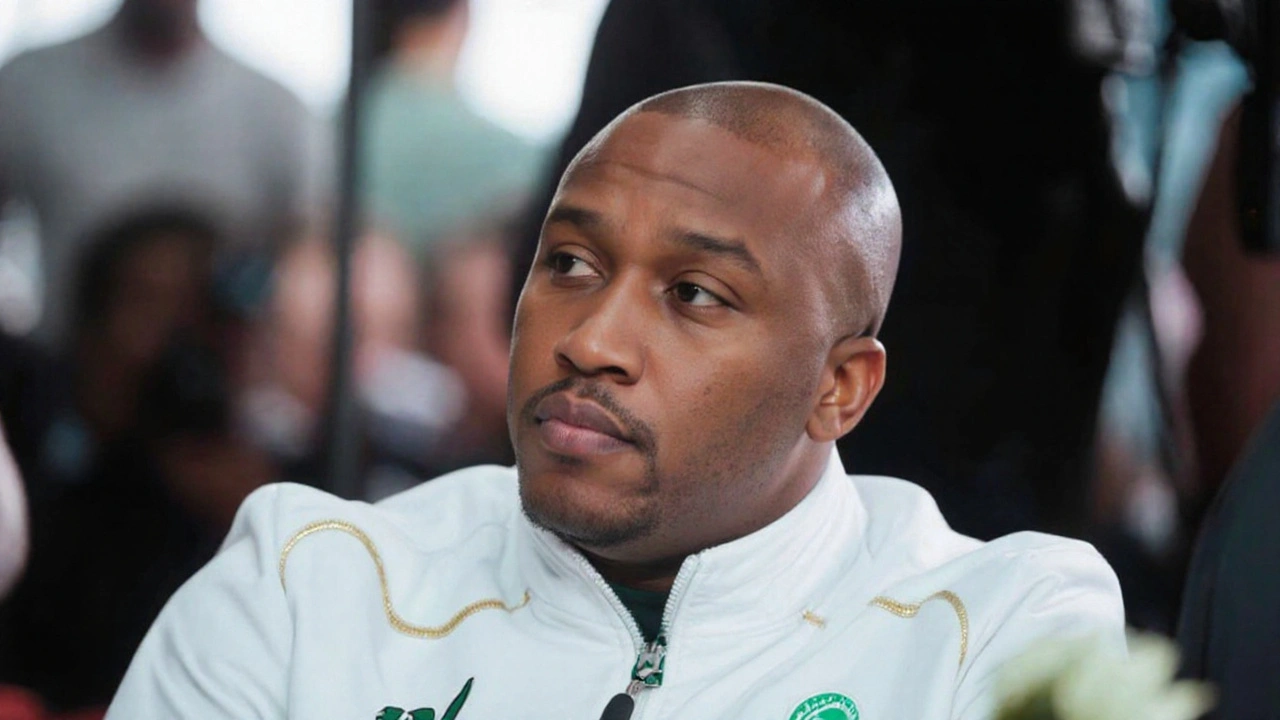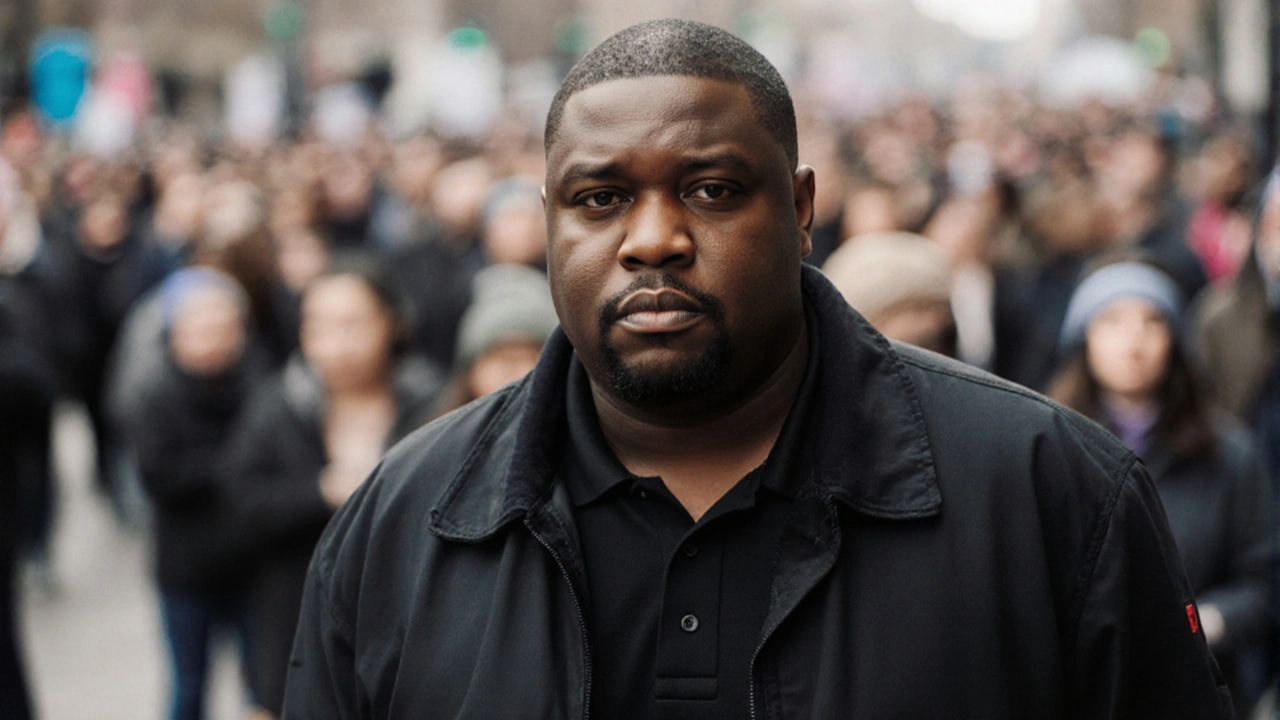When the National Arts Council told Minister of Sport, Arts and Culture Gayton McKenzie it wasn’t going to suspend two top officials, the whole thing blew up in parliament. The minister had given a clear directive, but the council pushed back, saying the move would breach its own processes. What started as a procedural dispute quickly turned into a full‑blown showdown over who really runs South Africa’s cultural institutions.
Why the standoff matters
On September 4, 2025, committee member Eugene Mthethwa grabbed the microphone and accused McKenzie of using the arts sector as a political pawn. He claimed the minister was "deliberately destabilising the entities under your department for your own purpose" and pointed to a string of long‑running suspensions across multiple bodies, including a 21‑month case at the NAC.
Mthethwa didn’t just throw accusations – he demanded transparency. "Allow the public to comment on names of people you put to serve on boards," he said, urging the minister to stop hiding appointments behind legal jargon. McKenzie shot back, insisting there’s no law that forces him to publish board members’ names and warning that critics were “insulting” both his faith and his party.
The back‑and‑forth highlighted two bigger issues. First, the legal gray area around board appointments: South African statutes give ministers broad leeway, but civil society groups argue that secrecy erodes trust. Second, the political stakes for McKenzie’s Patriotic Alliance, which is flirting with a withdrawal from the national unity government because of lingering disputes over reinstated posts.
Adding insult to injury, just weeks after the parliamentary clash, the minister moved to suspend the council’s former acting CEO Julia Diphofa and the acting CFO on September 17, 2025. Those dismissals were framed as enforcement of compliance, yet they reinforced the perception that McKenzie is willing to use his authority aggressively when faced with resistance.

What’s next for the arts sector
Committee chairperson Joe McGluwa has called for hard evidence, urging members to bring documents that could substantiate the claims on both sides. The request underscores a growing demand for accountability, not just from the minister but also from the council, which must justify its refusal to follow a direct order.
Stakeholders are bracing for a possible legal showdown. If the council’s defiance is deemed unlawful, it could be hauled before the courts, setting a precedent for how much autonomy cultural bodies retain under ministerial oversight. Conversely, if McKenzie’s suspensions are ruled ultra‑vague or politically motivated, the minister could face parliamentary censure or even a motion of no‑confidence.
Meanwhile, artists, producers and cultural NGOs are watching closely. Many fear that a protracted battle could stall funding, delay grants, and create a climate of uncertainty that drags down creative projects. Some have already started petitions demanding clearer governance rules and a public register of board appointments.
In short, the NAC’s stand-off with the minister is more than a bureaucratic spat. It’s a litmus test for South Africa’s commitment to transparent, depoliticised cultural governance. As the parliamentary committee gathers evidence and the courts weigh in, the arts community is holding its breath, hoping the outcome will protect both creative freedom and good‑governance.

Chance Remien
September 27, 2025 AT 04:28It is striking how the NAC's insistence on procedural integrity underscores a deeper democratic principle. By demanding transparency, they are not merely protecting their own autonomy but also safeguarding the public's trust in cultural institutions. The minister’s remit, while legally broad, should be exercised with regard to established governance norms. A balanced approach would involve clear communication of board appointments while respecting statutory confidentiality where appropriate. Ultimately, constructive dialogue could avert a protracted legal battle that would harm the arts sector.
Anna Lee
September 27, 2025 AT 18:21Wow, this whole saga is just wild,, the NAC really standing their ground, and the minister seems to be pushing back hard,, maybe they should just talk it out?? I think the public deserves to know who’s running these boards, bcoz transparency builds confidence,, even if some legal jargon tries to hide things.
Daniel Craine
September 28, 2025 AT 08:15Looks like the minister just can't handle a little bureaucratic pushback.
Kristen VanPamel
September 28, 2025 AT 22:08The conflict reveals a fundamental tension between authority and accountability the former asserting dominance while the latter whispers of legitimacy the NAC's resistance is a reminder that institutions exist to temper power they act as a bulwark against unilateral decrees the procedural defiance is not mere obstinacy but a reflection of deeper philosophical questions about governance who decides the limits of ministerial reach the answer lies not in rhetoric but in the codified statutes and the lived practice of public oversight the debate is a microcosm of the broader struggle for democratic health within cultural policy the NAC's stance, though contentious, underscores the necessity of checks and balances
Liz Lessner
September 29, 2025 AT 12:01Honestly, the whole thing feels like a tug‑of‑war that could have been avoided with a simple public list. Artists need clarity on who holds the purse strings, and secrecy only fuels suspicion. Maybe a joint committee could draft a transparent appointment protocol?
Reid Vance
September 30, 2025 AT 01:55Exactly! A joint committee would bring both sides to the table and keep the arts thriving. Transparency isn’t just a buzzword-it’s the backbone of trust, and trust fuels creativity. Let’s push for that collaborative solution!
Javier cox
September 30, 2025 AT 15:48From a cultural ambassador’s view, the arts deserve stable governance that isn’t caught in political crossfires. Consistent funding and clear leadership are essential for international collaborations.
Giacinta Pace
October 1, 2025 AT 05:41Totally agree! When the environment is stable, artists can focus on creating, not worrying about politics.
darryl archer
October 1, 2025 AT 19:35The overarching issue here is not merely procedural but emblematic of governance fatigue. One must consider the ramifications of allowing ministerial whimsy to eclipse institutional autonomy. A precedent such as this may erode the very scaffolding upon which cultural policy is built. It would behoove all stakeholders to revisit the legal framework with a view toward safeguarding independence while ensuring accountability.
Dina DiCicco
October 2, 2025 AT 09:28Agreed – it’s time to put an end to this power play. The arts deserve better! 🙌
Kasey DellaPenna
October 2, 2025 AT 23:21Let’s channel that energy into positive action the arts community can rally together and demand clear guidelines that protect both creativity and good governance
Gayleen Lowrie
October 3, 2025 AT 13:15Positive action starts with open dialogue among all parties involved. By sharing concerns respectfully, we can build solutions that honor both artistic freedom and responsible oversight.
Wesley Nakamatsu
October 4, 2025 AT 03:08From a standpoint of national pride, it is imperative that our cultural institutions reflect the sovereign will of the people. Ministerial authority must be exercised without undue hesitation, lest we compromise the integrity of our heritage.
Tyler Tucker
October 4, 2025 AT 17:01Whoa, this drama feels like a soap opera! The minister’s moves are pure overkill and the council’s defiance is just as theatrical. Someone grab the popcorn.
julia mutambara
October 5, 2025 AT 06:55It is truly a pivotal moment for the arts in South Africa, and the outcome will shape the future for countless creators and institutions. The conflict began with a simple question of authority, yet it has blossomed into a broader conversation about transparency, accountability, and the role of government in cultural stewardship. By demanding a public register of board members, stakeholders aim to illuminate a process that has long been shrouded in legalese. Such openness could foster trust, encouraging artists to engage more freely with funding bodies. At the same time, the minister’s perspective underscores the necessity of swift decision‑making in times of crisis, arguing that excessive disclosure could hamper efficiency. Both positions hold merit, suggesting that a middle ground might be the most beneficial path forward. One possible compromise could involve a phased release of board information, safeguarding sensitive details while gradually increasing public insight. Additionally, establishing an independent oversight committee could ensure that both ministerial directives and council autonomy are respected. This committee might comprise representatives from the arts community, legal experts, and governmental officials, creating a balanced forum for dispute resolution. By embracing such collaborative mechanisms, the sector could avoid prolonged legal battles that drain resources and distract from artistic endeavors. Moreover, clear guidelines on suspension protocols would provide predictability, enabling institutions to plan with confidence. The broader implication of this standoff extends beyond South Africa, offering a case study for other nations wrestling with similar governance challenges. As the legal proceedings unfold, it will be essential for all parties to keep the focus on nurturing a vibrant, inclusive cultural landscape. In the end, the true measure of success will be whether artists feel supported and empowered, and whether the public can enjoy a diverse array of creative works without fear of political interference. Let us hope that reason prevails, and that this episode serves as a catalyst for positive, lasting reform.